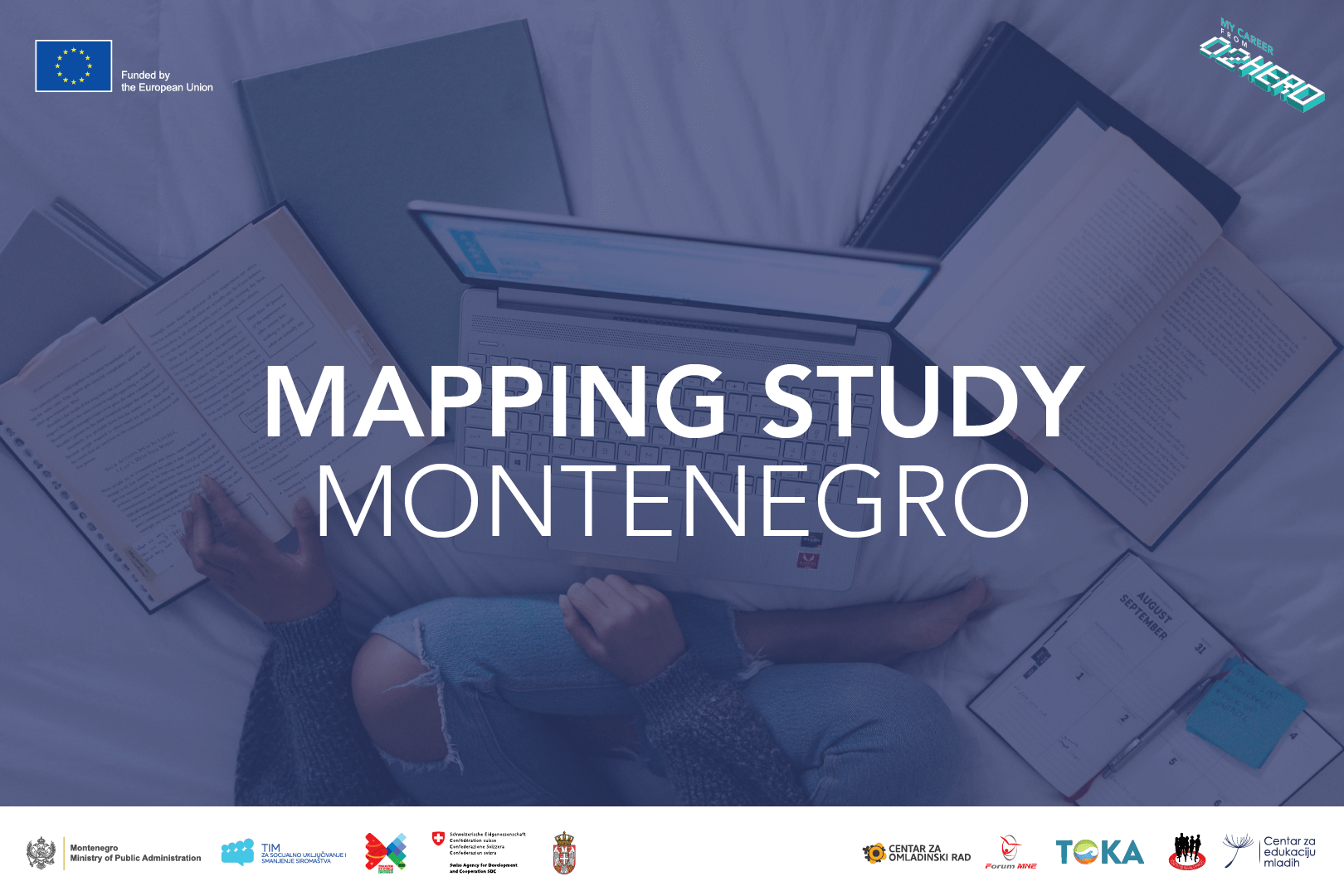Technological development, accelerated digitalisation and automatisation personified in 4.0 digital resolution have exerted enormous influence on the entire society, especially youth. 4.0 digital revolution could boost the economies of both Montenegro and other Western Balkan countries, suffering from high unemployment and struggling with post-transition issues. The synergy of state institutions, the education system, civil sector and IT sector could result in expeditors opening of new workplaces that could employ young NEET (Not in Employment, Education or Training) population. Of course, such adaptation will necessarily require retraining of the NEET people and one stop shop youth employment model could facilitate the process.
One stop shop youth employment model could be loosely defined as a model which facilitates young’s people transition from school to the labour market by offering a range of different, multi-stakeholders services to young people at one place, such as: youth outreach, youth work support, non-formal education, career counselling, entrepreneurship, employer contact of point etc.
In order to obtain more comprehensive findings on feasibility of application of this employment model in Montenegro, we have used both quantitative and qualitative research methods. Quantitative surveys were conducted with three groups of people and entities – NEETs (131 of them interviewed), representatives of IT and small and medium enterprises (42 interviewed) and civil society organizations (31 interviewed). Additionally, 5 in depth interviews were conducted with representatives of state and local administration involved in communication with NEET population.
Main findings
Respondents belonging to the NEET population cited the inability to find a suitable job as one of the most common reasons for their unemployment, or stressed that they would rather do an internship with the possibility of employment. Of particular importance is the fact that there is a very small number of those who believe that they are not qualified enough, i.e. that they do not have adequate skills necessary for employment. Thus, according to the above, NEET persons claim that the reasons for their status are not lack of qualifications and information, but that due to the mismatch of supply and demand in the labor market, they fail to find a job.
On the other hand, a large number of representatives of IT, small and medium enterprises believe that formal education of young people is not adequate.
When it comes to civil society organizations that have implemented programs or projects focused on the employment of the NEET population, the representatives pointed out that communication and lack of motivation of NEET people to participate in these projects are the main difficulties in their implementation. In their opinion, the most common challenge that young people face when entering the labor market is inadequate institutional support.
Taking into account the findings described in the research, and a review of them presented in this chapter, the project team highlights the following recommendations
- Since the main criteria when selecting candidates for potential employees are mostly evaluated knowledge of technical and soft skills, it is necessary to provide training which will improve precisely those skills;
- Although there is a certain, previously described level of dissonance in attitudes between the three surveyed groups when it comes to the importance of individual skill groups, all three groups agree that computer skills must take precedence; Computer skills include work in the Microsoft Office package – employers consider it very important, and the NEET population is the least familiar with this skill when it comes to groups of computer skills. The motivation of young people for additional training on this issue, as well as the great availability of capacities for providing non-formal educational programs, also support training in this area;
- In addition to computer skills, soft skills training should be the focus of one stop shop model – although IT representatives consider them the least important, there are 3 reasons to emphasize their training: NEET population considers them important to increase their own competitiveness, CSOs have good capacities to help improve these skills, and knowledge of these skills is important for all business activities.
- Out of soft skills, the NEET population has the least knowledge of skills such as writing a CV, cover letter, foreign languages and entrepreneurial skills, and when we talk about “soft” skills these are among the key skills for finding employment, so it would be desirable to provide additional support for young people for their improvement. At the same time, improving these skills would reduce the number of NEETs who do not apply for a job at all, which is 15.4% of respondents;
- When it comes to other skill groups, special attention should be paid to the professional tools Adobe Photoshop and Adobe Illustrator, as they are very important for employers and at the same time there is a real capacity for their training;
- Due to the great interest of young people in web design training, it is recommended to find a partner who could provide support in this specific area;
- Since back end development skills are considered important for employers, and at the same time capacities are offered for their improvement, it is desirable to encourage young people to strive to improve knowledge on this issue, because most of them are not interested in this area;
- Through trainings, young people should understand the importance of non-formal education, even on their own – while representatives of state institutions consider the lack of non-formal education a key predictor of unemployment, and representatives of the business sector and CSOs emphasize its importance, this is not the case with NEETs. A degree related to formal education should only provide access to the labor market, while skills acquired through non-formal education are what separate young people who have been employed from those who are still unemployed.
Mapping study could be found on the following link: https://www.forum-mne.com/?mdocs-file=2816

